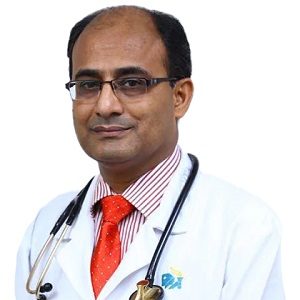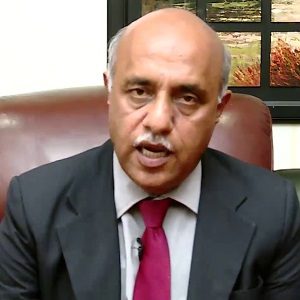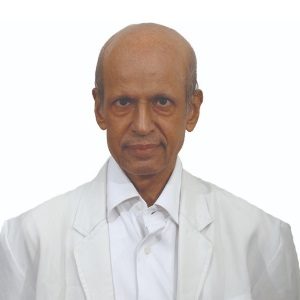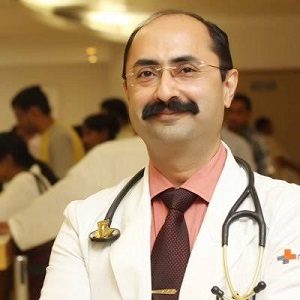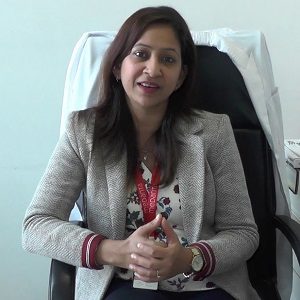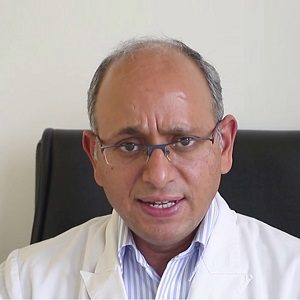Best Doctors in India for Pheochromocytoma Treatment
- Endocrinologist and Diabetologist, Chennai, India
- Over 36 years’ experience
Profile Highlights:
- Dr. P G Sundararaman is one of the senior Endocrinologists in Tamil Nadu with an experience of 36 years in this field.
- Patients seek consultation for bioidentical hormone therapies for men and women, Thyroid Disorder Treatment, Gestational Diabetes Management, Growth Abnormalities, Endocrine Stem Cell Therapy, Lactation Counselling, etc.
- He keeps himself updated with the latest in the field by attending national and international conferences.
- Endocrinologist and Diabetologist, Chennai, India
- Over 26 years’ experience
Profile Highlights:
- Dr. Boochandran is one of the best Endocrinologists in Chennai, with 26 years of experience in diabetes and endocrinology.
- After completing his MBBS in Chennai, he went on to earn his Master’s degree from Kings College Hospital in London.
- Dr. Boochandran specializes in the treatment of hypothyroidism, obesity, parathyroid dysfunction, polycystic ovarian disease, and a variety of other endocrine gland disorders.
- Endocrinologist and Diabetologist, Chennai, India
- Over 38 years’ experience
Profile Highlights:
- Dr. Shantharam D is a renowned Endocrinologist & General Physician in Tamil Nadu, having 38 years of experience.
- The doctor has received many awards for teaching and service in the field. Dr. Shantharam keeps himself updated by attending workshops and conferences organized internationally or nationally.
- He is a faculty member for the PHFI’s certificate course in Evidence-Based Diabetes Management and the TN Government’s certificate course in Diabetes for practicing physicians, particularly those from rural Tamil Nadu.
- Endocrine Surgeon, Chennai, India
- Over 22 years’ experience
Profile Highlights:
- Dr. Sai Krishna Vittal is one of the best Endocrinologists in Tamil Nadu who practices at Apollo Hospital, Chennai.
- As a board-certified endocrinologist with more than two decades of experience, Dr. Vittal offers consultation and treatment for male & female sexual problems.
- He is also a professor at The Tamil Nadu Dr. MGR Medical University and The Royal College of Surgeons of Edinburgh.
- Endocrinologist and Diabetologist, Chennai, India
- Over 33 years’ experience
Profile Highlights:
- Dr. Sivagnana Sundaram, a renowned endocrinologist in Chennai, specializes in diabetes treatment for patients.
- With 33 years of experience, he is India’s first DNB-qualified endocrinologist.
- Dr. Sundaram offers Lactation Counselling, Goiter Treatment, Hyper and Hypo Thyroid Treatment, Diabetes Management, and Gestational Diabetes Management to name a few.
- Endocrinologist and Diabetologist, Chennai, India
- Over 16 years’ experience
Profile Highlights:
- Dr. Narayanan N K is a well-respected endocrinologist in Chennai, having practiced for more than 16 years.
- Dr. Narayanan received the best abstract prize for his research on non-invasive lateralization tactics in the treatment of primary hyperaldosteronism. His poster presentation on Familial adrenocortical carcinoma has awarded as the best at the BES conference.
- Several of Dr. Narayanan’s research works have appeared in peer-reviewed journals published domestically and abroad.
- Pediatric Endocrinologist, Gurugram, India
- Over 15 years’ experience
Profile Highlights:
- Dr. Sumeet Arora is a renowned pediatric endocrinologist in Gurugram who has completed a major part of her studies in New York and Tennessee.
- She is an American Board Certified practitioner who has managed puberty problems like irregular or absence of menstruation and PCOS in adolescent women, hypogonadism, type-1, and type-2 diabetes, adrenal disorders, thyroid disorders, pituitary tumors, Cushing syndrome, Obesity, and weight management, etc.
- Endocrinologist and Diabetologist, Gurugram, India
- Over 20 years’ experience
Profile Highlights:
- Dr. Jasjeet Singh Wasir has been the Director and Consultant at the Department of Endocrinology and Diabetology in Medanta-The Medicity Hospital in Gurugram.
- Under the umbrella and guidance of Dr. Ambrish Mithal, he has been an expert doctor treating patients suffering from PCOD, obesity, and thyroid disorders.
- Associate Director Endocrinology & Diabetology, Gurugram, India
- Over 10 years’ experience
Profile Highlights:
- Dr. Parjeet Kaur is an expert in treating patients with endocrine disorders, especially, diabetes, thyroid, and parathyroid disorders, PCOS, and obesity.
- Dr. Parjeet Kaur is being actively involved in extensive research and practice of Endocrinology and the sub specialties.
- Endocrinologist and Diabetologist, Gurugram, India
- Over 25 years’ experience
Profile Highlights:
- Dr. Sunil Kumar Mishra is an experienced Endocrinologist. His experience extends to pituitary disorders, metabolic disorders of calcium and phosphorus, and excessive hair growth patterns in women.
- He has worked both in the clinical arena and educational sector during his tenure of being a doctor.
Best Hospitals in India for Pheochromocytoma Treatment
Rela Hospital, Chennai
- City: Chennai, India
Hospital Highlights:
- RIMC is a multi-specialty hospital in a sprawling area of 36 acres located in Chromepet, Chennai, Tamil Nadu, India.
- The facility has 450 beds including 130 critical care beds, 9 operating rooms, modern reference laboratories and radiology services, and is conveniently located near road, rail and air transportation.
- RIMC is led and managed by world-renowned physicians committed to healthcare.
- RIMC offers the broadest range of clinical care, education, and research. The hospital offers state-of-the-art technology and modern treatment facilities designed to provide health care at an affordable cost.
- Rela Institute is driven by patient needs, comfort and confidence.
CARE Hospitals, Hyderabad
- City: Hyderabad, India
Hospital Highlights:
- CARE Hospitals were established in the year 2000, by CARE Group.
- The multispecialty hospital has 435 beds, including 120 critical care beds, with an annual inflow of 180000 outpatients and 16,000 in-patients.
- The hospital provides specialty medical services in Cardiology, Cardiothoracic Surgery, Pediatric Cardiology, Pediatric Cardiothoracic Surgery, Neurology, Neurosurgery, Nephrology, and Urology.
- The hospital has the first dual source, 128 slice CT scanner (for high precision cardiac imaging) – the first of its kind in south India.
- The hospital offers a wide range of accommodation facilities for the convenience of its varied patient base, ranging from general wards to super deluxe rooms.
Fortis Hiranandani Hospital, Mumbai
- City: Mumbai, India
Hospital Highlights:
- Fortis Hiranandani hospital was established in 2007.
- The hospital is an advanced tertiary care, multi-specialty hospital equipped with 149 beds.
- The hospital is equipped with a super ICU to provide emergency medical care to critically ill patients.
- The hospital is NABH accredited.
- The critical care facility in the hospital is augmented with the state-of-the-art facilities that facilitate speedier diagnosis and efficient monitoring.
- The hospital provides specialty medical services in cardiology, orthopedic science, pediatric science, neurology, diabetic care, urology, nephrology, ENT, obstetrics, gynecology, cosmetic surgery, bariatric surgery, neuro and spine care.
Fortis Hospital, Anandpur, Kolkata
- City: Kolkata, India
Hospital Highlights:
- Fortis Hospital, Anandapur, Kolkata is a world-class super-speciality equipped with the latest technologies in the medical world.
- The hospital is NABH accredited.
- This state-of-the-art facility specializes in cardiology and cardiac surgery, urology, nephrology, neurosciences, orthopaedics, digestive care, emergency care and critical care.
- The hospital, governed by integrated Building Management System (IBMS), has a pneumatic chute system, for quick vertical and horizontal transportation between floors, facilitating speedy transfer of patient specimens, documents, reports, and medicines to the concerned departments.
- The hospital also has a nephrology department with over 28 advanced dialysis units.
Fortis Hospital Banerghatta, Bengaluru
- City: Bengaluru, India
Hospital Highlights:
- Fortis Hospital Bannerghatta, Bengaluru was established in 2006.
- The hospital is a 276 bedded multi-specialty tertiary care facility.
- The hospital specializes in cutting-edge medical technology and dedicated patient care services.
- The hospital is equipped with state-of-the-art technologies like trans-radial angioplasty, trans-abdominal cardiac surgery, and computerized TKR navigation surgery.
- The hospital provides specialty medical services in cardiology, cardiac surgery, orthopedics, neurology, neuro-surgery, GI, and Minimal Access Surgery (MAS).
Gleneagles Global Hospital, Parel, Mumbai
- City: Mumbai, India
Hospital Highlights:
- Gleneagles Global Hospital The 450-bed facility comprises of 17-stories, housing state-of-the-art infrastructure, and advanced medical care facilities.
- The hospital offers end-to-end clinical, surgical, and diagnostic services. It is equipped with a team of eminent medical professionals aided by qualified nurses and medical staff
- The Hospital offers advanced Endoscopic procedures, Hepatobiliary and Liver Surgeries, Surgical and Medical Gastroenterology, Bariatric Surgery, and Robotic surgery.
- The hospital is a center of excellence for Orthopedics, Joint Replacement, Knee Replacement, and Hip Replacement surgery.
Jaypee Hospital, Noida
- City: Noida, India
Hospital Highlights:
- Jaypee Hospital is the flagship hospital of the Jaypee Group.
- This hospital has commissioned 525 beds in the first phase and has been planned and designed as a 1200 bedded multi-specialty facility.
- It holds the accreditation of the NABH and NABL.
- The hospital has state-of-the-art infrastructure equipped with the latest technologies and modern equipment like 64 Slice PET CT, Dual Head 6 Slice SPECT CT, Gamma Camera, and Da Vinci Robotic Surgery for comprehensive robotic surgical solutions.
- It has special Centers dedicated to the major specialties to provide hassle-free and high-quality clinical care.
Manipal Hospital, Dwarka, Delhi
- City: New Delhi, India
Hospital Highlights:
- Manipal Hospitals, Dwarka, is a super-specialty hospital in Dwarka, New Delhi, which is a part of Manipal Hospitals Group.
- The hospital aims to provide the best treatment on par with international standards at a fraction of the cost.
- Equipped with 380 beds, the hospital is also one of the new age hospitals which are equipped fully with state-of-the-art infrastructure, cutting-edge technology as well as the latest and advanced clinical practices. The hospital also has 13 modular Operation theatres with 118 beds which are solely meant for critical care.
- The hospital comprises internationally acclaimed doctors and highly professional and experienced hospital and medical staff who are able to provide preventive, therapeutic, and diagnostic services all under one roof.
Paras Hospital, Gurugram
- City: Gurugram, India
Hospital Highlights:
- Paras hospital was established in 2006 and is the 250 bedded flagship hospital of Paras Healthcare.
- The is supported by a team of doctors of international and national repute.
- The hospital is NABH accredited and also the first hospital in the region to have a NABL accredited laboratory.
- The hospital provides specialty medical services in around 55 departments including Neurosciences, Joint Replacement, Mother & Child Care, Minimal Invasive Surgery, Gynecology and Obstetrics, Ophthalmology, Dermatology, Endocrinology, Rheumatology, Cosmetic and Plastic surgery.
- The hospital is equipped with state-of-the-art technologies.
S L Raheja Hospital, Mahim, Mumbai
- City: Mumbai, India
Hospital Highlights:
- SL Raheja hospital is a 140-bed multi-specialty tertiary care hospital that is being managed by Fortis Healthcare Ltd.
- The hospital is a benchmark in healthcare and medical facilities in the neighborhood of Mahim & the western suburbs.
- L.Raheja Hospital, Mahim has one of the most effective ICU and Casualty care services.
- The hospital provides specialty medical services in Cardiology, Oncology, Neurology, Orthopedics, Mother & Child Care, and in Diabetes.
Pheochromocytoma
Pheochromocytoma is a rare type of tumor that usually grows in the adrenal glands, above the kidneys. It is also known as an adrenal paraganglioma or a chromaffin cell tumor. It is generally common in adults between the ages of 30 to 50, though people of all ages might have it. Ten percent of all cases are known to occur among children.
Your adrenal glands produce hormones for controlling things like your metabolism and your blood pressure. A pheochromocytoma releases hormones as well, at much higher levels than normal. These extra hormones can lead to high blood pressure, and this might lead to damage to several of your organs, such as your brain, heart, lungs, and kidneys.
Though most pheochromocytoma tumors are benign, around 10 to 15 percent of them are generally cancerous, and they might spread to other parts of the body.
Symptoms
People having these tumors suffer from high blood pressure all the time. For others, it can go up and down.
Most people also have at least one or more of the following symptoms:
- Constipation
- Dizziness while standing
- Pale skin
- Fast or uneven heartbeat
- Severe headache
- Nausea
- Tremors
- Shortness of breath
- Unusual sweating
- Stomach, side, or back pain
- Vomiting
- Weakness
- Anxiety attacks
- Unintended weight loss
These symptoms can occur suddenly, like an attack, multiple times during a day. For some people, they might occur only a few times a month. As the tumor grows, the attacks can get stronger and might occur more often.
In some people, the attacks might be triggered by certain things such as:
- Pressure on the tumor
- Massage
- Certain medications
- Physical activity
- Childbirth
- Surgery
- Too much emotional stress
- Foods containing excessive amino acid tyramine, such as red wine, chocolate, or cheese
Causes & risk factors
Researchers are still unsure of what exactly is the cause of pheochromocytoma. This tumor develops in specialized cells, which are termed chromaffin cells, located in the center of an adrenal gland.
These cells release certain hormones, primarily adrenaline, and noradrenaline that helps to control several body functions, such as heart rate, blood pressure as well as blood sugar.
Adrenaline and noradrenaline trigger your body’s fight-or-flight response when a threat is perceived. The hormones can cause your blood pressure to increase as well as your heart to beat faster. They also prepare other body systems in order to help enable you to react quicker. A pheochromocytoma causes more of these hormones to be released even when you’re not in a threatening situation.
People having certain rare inherited disorders are at an increased risk of pheochromocytoma or paraganglioma. It is also likely that tumors associated with these disorders will be cancerous.
These genetic conditions include the following:
Multiple endocrine neoplasias, type 2 (MEN 2) – This disorder results in tumors in more than a single part of the body’s hormone-producing (endocrine) system. Other tumors which are associated with this condition may appear on the thyroid, tongue, parathyroid, lips, as well as the gastrointestinal tract.
Neurofibromatosis 1 (NF1) – This can result in multiple tumors in the skin, pigmented skin spots as well as tumors of the optic nerve.
Von Hippel-Lindau disease – This disorder can result in tumors at multiple sites, which can include the central nervous system, endocrine system, pancreas as well as kidneys.
Hereditary paraganglioma syndromes – These are inherited disorders which may result in paragangliomas or pheochromocytomas.
Diagnosis
Your doctor might require multiple tests for diagnosing this condition. These can include the following:
- PET imaging
- MRI
- Blood plasma test for catecholamine and metanephrine levels
- Laboratory tests in order to assess the hormone levels
- Urine metanephrines test for catecholamine and metanephrine levels
Treatment
Generally, the primary treatment for pheochromocytoma is surgery for removing the tumor. However, before you go for surgery, your doctor should likely recommend certain blood pressure medications. These are meant to block the actions of the high-adrenaline hormones and to lower the risk of developing extreme high blood pressure.
You will likely receive few drugs which can include alpha-blockers, for improving blood flow and decreasing blood pressure and beta-blockers, to make your heart beat slowly with less force.
It is also likely that your healthcare team will instruct you to consume a high-salt diet. These medications can cause a huge drop in your blood pressure; a high-salt diet will help you draw more fluid inside the blood vessels, and prevent you from having low blood pressure during and after the surgery.
Surgery
During the surgery, in most cases, the surgeon removes the entire adrenal gland with a pheochromocytoma using minimally invasive surgery. For this, your surgeon will need to create a few tiny openings through which he/she will insert wandlike devices equipped with video cameras and small tools.
The remaining healthy adrenal gland is able to carry out the functions normally performed by two. Blood pressure will likely return to normal within a short time.
If the other adrenal gland has been removed, then during the surgery, your doctor will remove only the tumor, and spare some of the healthy tissue.
If a tumor is cancerous, the tumor and other cancerous tissues are going to be removed. However, even if all of the cancerous tissues are not removed, surgery might limit the production of hormones. It also helps in providing some control over the blood pressure.
Cancerous pheochromocytoma treatments
Certains pheochromocytomas are also cancerous. And therefore, other treatments can be required for them, such as:
MIBG
This is a special kind of radiation therapy. It combines MIBG, a compound that attaches to the adrenal tumors, with a type of radioactive iodine. The goal of the treatment is to deliver radiation therapy to a specific site and eliminate the cancerous cells.
Chemotherapy
Chemotherapy involves using powerful drugs for killing fast-growing cancer cells.
Radiation therapy
This treatment might be used for symptomatic treatment of tumors that have spread to other parts of the body and causing pain.
Targeted cancer therapies
Peptide receptor radionuclide therapy (PRRT)
PRRT combines a drug that targets cancer cells with a small amount of a radioactive substance. It allows radiation to be delivered to the cancer cells directly.
People having pheochromocytoma which is not cancerous generally have a 5-year survival rate of 96 percent, while for people with a cancerous tumor, the survival rate is 44 percent.
For ensuring successful treatment, an early diagnosis is not always enough. It is best that you seek out a surgeon who is highly skilled and experienced.
Complications
High blood pressure caused by the tumors can cause damage to various organs, especially tissues of the cardiovascular system, brain, or even the kidneys. Some of the critical conditions include the following:
- Heart disease
- Kidney failure
- Problems with the nerves of the eye
- Stroke


